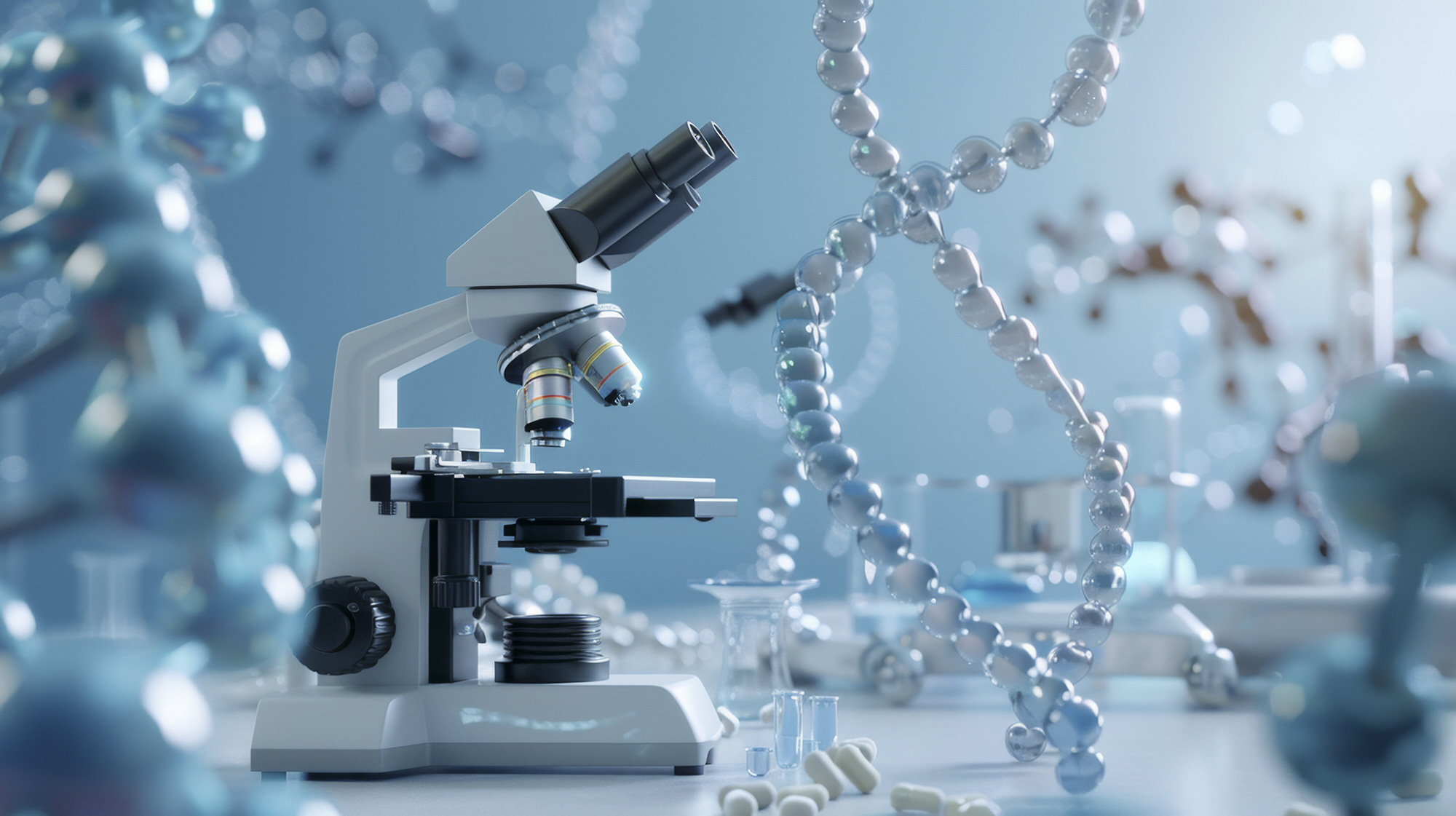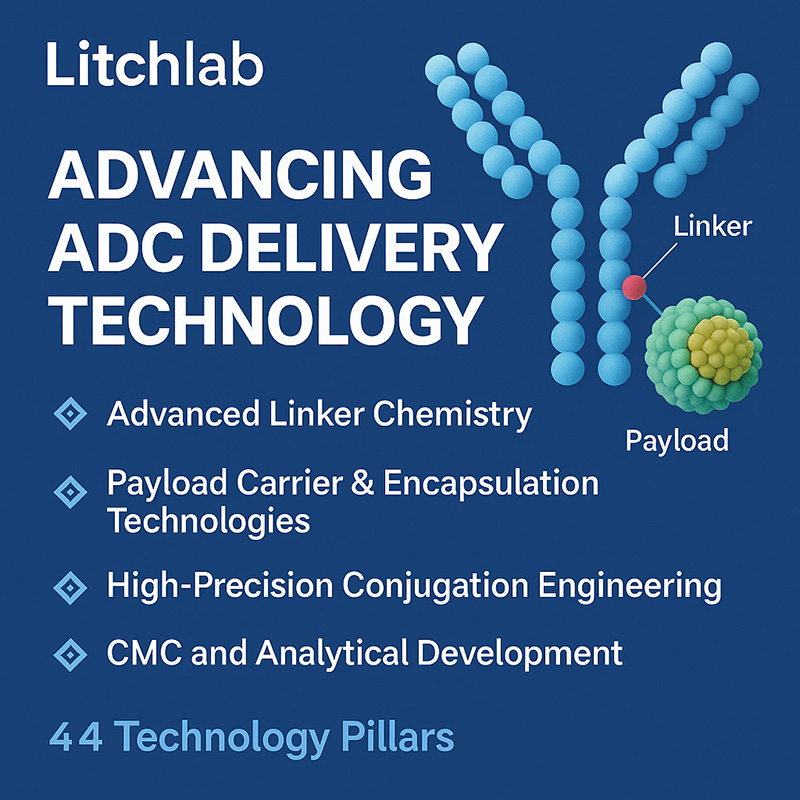
As Antibody-Drug Conjugates (ADCs) rapidly emerge as one of the most transformative innovations in oncology and targeted therapy, Litchlab, a global contract development and manufacturing (CDMO) company specializing in drug delivery platforms, today announced a significant expansion of its end-to-end ADC delivery capabilities. The upgraded platform integrates advanced linker chemistry, drug carrier systems, site-specific conjugation, and analytical support, enabling pharmaceutical partners to accelerate development from early discovery through clinical phases.
ADCs represent a new generation of precision therapeutics that combine the targeting ability of monoclonal antibodies with potent cytotoxic payloads. As of 2025, over 400 ADC candidates are in the global pipeline, addressing cancer types from HER2-positive breast cancer to hematological malignancies. Recently approved products like Enhertu, Trodelvy, and Elahere have proven the clinical potential and commercial viability of ADCs.
However, increasing innovation brings new technical hurdles:
Linker instability, leading to premature payload release and systemic toxicity;
Low DAR (Drug-to-Antibody Ratio) control and inconsistent conjugation profiles;
Poor solubility and bioavailability of hydrophobic toxins;
Scale-up challenges, with variability in conjugation and purification processes.

Litchlab’s platform addresses the full ADC value chain by providing solutions for linker synthesis, payload encapsulation, conjugation chemistry, and CMC analytics. The offering is structured across four technology pillars:
Litchlab offers a diverse range of cleavable and non-cleavable linker systems, optimized for stability, controlled release, and tumor selectivity:
Acid-labile hydrazone linkers for tumor microenvironment-triggered release
Enzyme-cleavable peptide linkers (e.g., cathepsin B substrates)
Redox-sensitive disulfide linkers for glutathione-rich environments
Non-cleavable thioether linkers for extended systemic circulation
All linker candidates are validated through in vitro/in vivo stability tests, release profiling, and process reproducibility assessments.
To overcome solubility and delivery barriers of highly hydrophobic toxins (MMAE, DM1, PBD, etc.), Litchlab deploys several nanoformulation strategies, including:
Polymeric micelles for high-drug loading capacity
Lipid-based nanoparticles and liposomes for stealth delivery
Mesoporous silica or MOF platforms for sustained release
PEGylation and ligand-targeted modifications for improved tumor penetration
These systems are tunable in size (50–200 nm) and surface charge, enabling optimized PK/PD profiles and increased tumor selectivity.
Litchlab supports both site-specific and stochastic ADC conjugation using a range of techniques:
Maleimide-thiol and NHS-amine chemistries
Click chemistry (azide–alkyne cycloaddition) for orthogonal coupling
Enzyme-based conjugation (Sortase A, transglutaminase) for precise payload positioning
The DAR (Drug-to-Antibody Ratio) can be finely tuned (2, 4, 8) to balance efficacy and safety, with in-house analytics including HIC-HPLC, MS, CE-SDS, and advanced peptide mapping.
To ensure regulatory compliance and batch-to-batch consistency, Litchlab delivers robust CMC development and IND-enabling support, including:
Residual toxin, linker impurity, and free drug quantification
Stability studies in serum/plasma and stressed conditions
Impurity profiling and forced degradation studies
IND/CTA/BLA dossier preparation and eCTD formatting support
All services are performed under GMP-like or GLP conditions, with optional transfer to full GMP manufacturing partners in Litchlab’s CDMO network.
Litchlab has successfully collaborated with global biopharma clients on multiple ADC projects, such as:
HER2 and TROP2 ADC early-stage development (linker selection & DAR tuning)
CD22/CD79b dual payload conjugates for hematologic malignancies
Bispecific antibody–toxin hybrids, with dual-site conjugation
RNAi-toxin co-delivery systems, advancing toward multifunctional ADCs
With a focus on speed, quality, and customization, Litchlab supports projects from milligram-scale prototyping to gram-scale IND submissions.
“ADC drug development is no longer just about attaching a toxin to an antibody—it’s a multidisciplinary challenge requiring chemistry, biology, material science, and regulatory fluency,” said Dr. Cheng Luo, Head of ADC Programs at Litchlab. “Our platform is designed to make ADCs smarter, safer, and more scalable.”
As ADC innovation expands into next-gen linkers, novel cytotoxins, bispecific antibodies, and tumor microenvironment-responsive systems, Litchlab remains committed to empowering developers through delivery innovation, data-driven formulation, and agile CDMO support.
📩 For partnership inquiries or technology presentations, please contact us at:
🌐 Website: www.litchlab.com
📧 Email: RD1 @litchlab.com